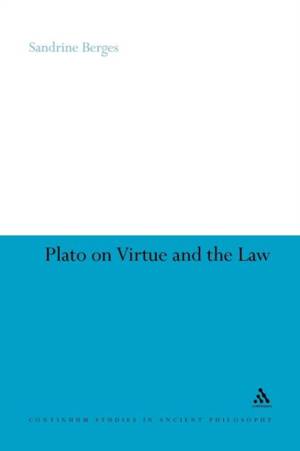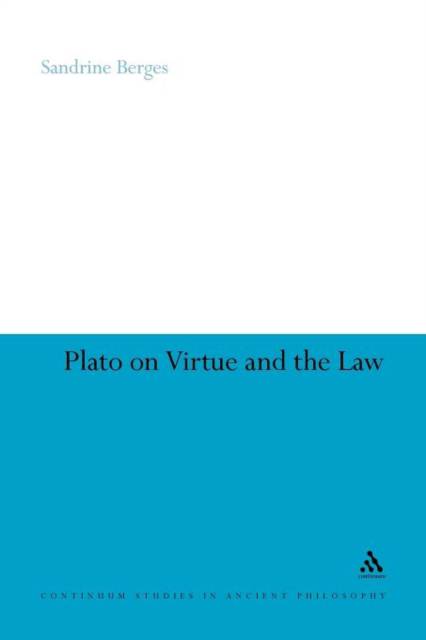
- Afhalen na 1 uur in een winkel met voorraad
- Gratis thuislevering in België vanaf € 30
- Ruim aanbod met 7 miljoen producten
- Afhalen na 1 uur in een winkel met voorraad
- Gratis thuislevering in België vanaf € 30
- Ruim aanbod met 7 miljoen producten
Zoeken
Omschrijving
Ancient philosophy is no longer an isolated discipline. Recent years have seen the development of a dialogue between ancient and contemporary philosophers writing on central issues in moral and political philosophy. The renewed interest in character and virtue as ethical concepts is one such issue, yet Plato's contribution has been largely neglected in contemporary virtue ethics.
In Plato on Virtue and the Law, Sandrine Berges seeks to address this gap in the literature by exploring the contribution that virtue ethics make to the understanding of laws alongside the interesting and plausible insights into current philosophical concerns evident in Plato's dialogues. The book argues that a distinctive virtue theory of law is clearly presented in Plato's political dialogues. Through a new reading of the Crito, Menexenus, Gorgias, Republic, Statesman and Laws, Berges shows how Plato proposes several ways in which we can understand the law from the perspective of virtue ethics.Ancient philosophy is no longer an isolated discipline. Recent years have seen the development of a dialogue between ancient and contemporary philosophers writing on central issues in moral and political philosophy. The renewed interest in character and virtue as ethical concepts is one such issue, yet Plato's contribution has been largely neglected in contemporary virtue ethics. In Plato on Virtue and the Law, Sandrine Berges seeks to address this gap in the literature by exploring the contribution that virtue ethics make to the understanding of laws alongside the interesting and plausible insights into current philosophical concerns evident in Plato's dialogues. The book argues that a distinctive virtue theory of law is clearly presented in Plato's political dialogues. Through a new reading of the Crito, Menexenus, Gorgias, Republic, Statesman and Laws, Berges shows how Plato proposes several ways in which we can understand the law from the perspective of virtue ethics.
Specificaties
Betrokkenen
- Auteur(s):
- Uitgeverij:
Inhoud
- Aantal bladzijden:
- 188
- Taal:
- Engels
- Reeks:
- Reeksnummer:
- nr. 16
Eigenschappen
- Productcode (EAN):
- 9781441111500
- Verschijningsdatum:
- 5/01/2012
- Uitvoering:
- Paperback
- Formaat:
- Trade paperback (VS)
- Afmetingen:
- 156 mm x 234 mm
- Gewicht:
- 272 g

Alleen bij Standaard Boekhandel
+ 179 punten op je klantenkaart van Standaard Boekhandel
Beoordelingen
We publiceren alleen reviews die voldoen aan de voorwaarden voor reviews. Bekijk onze voorwaarden voor reviews.








